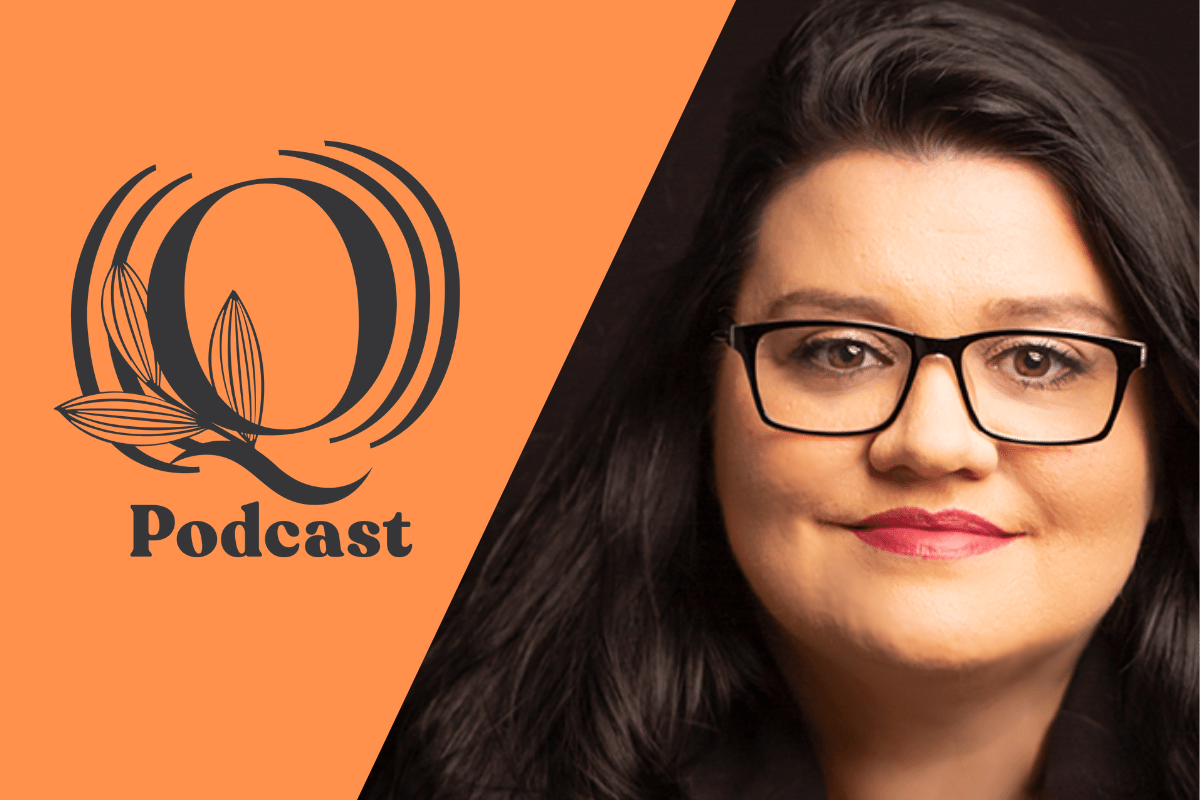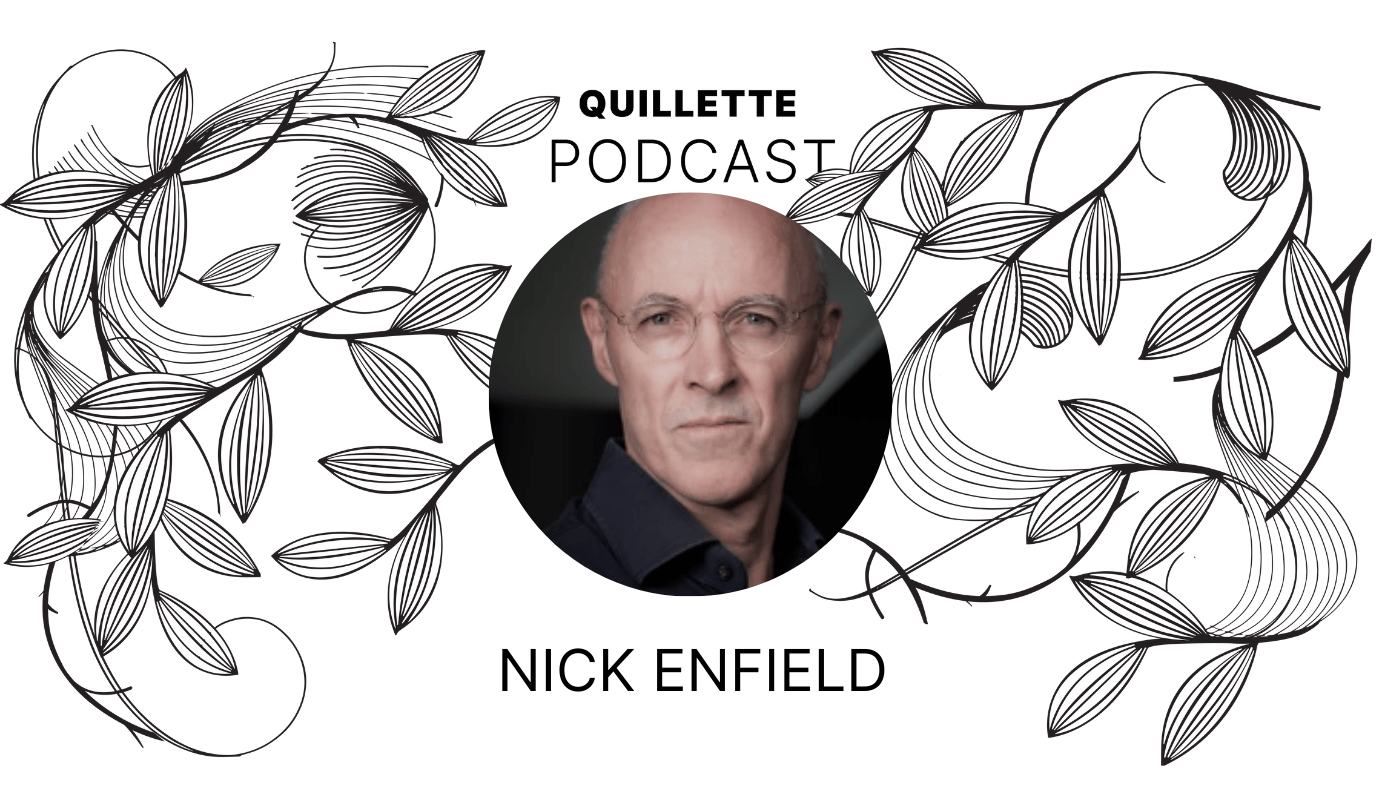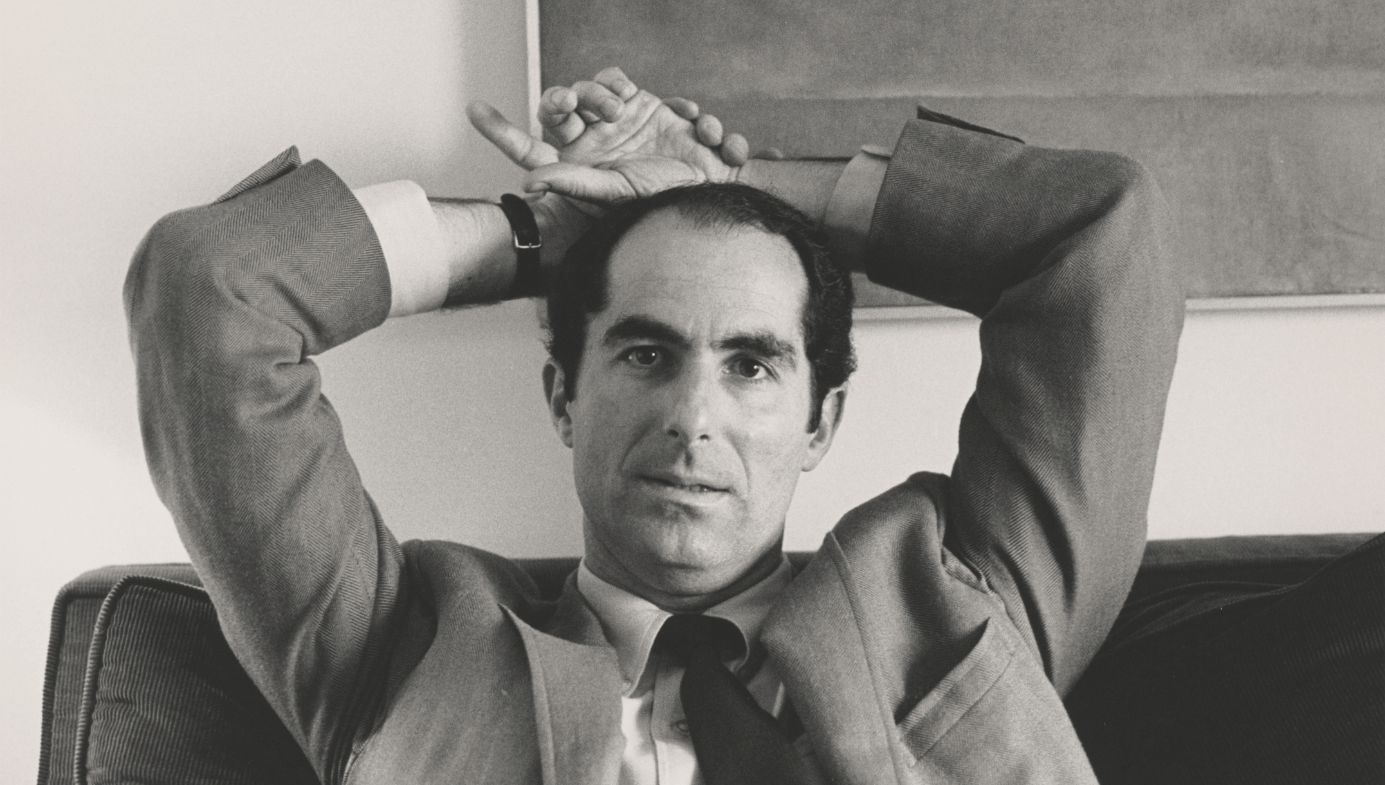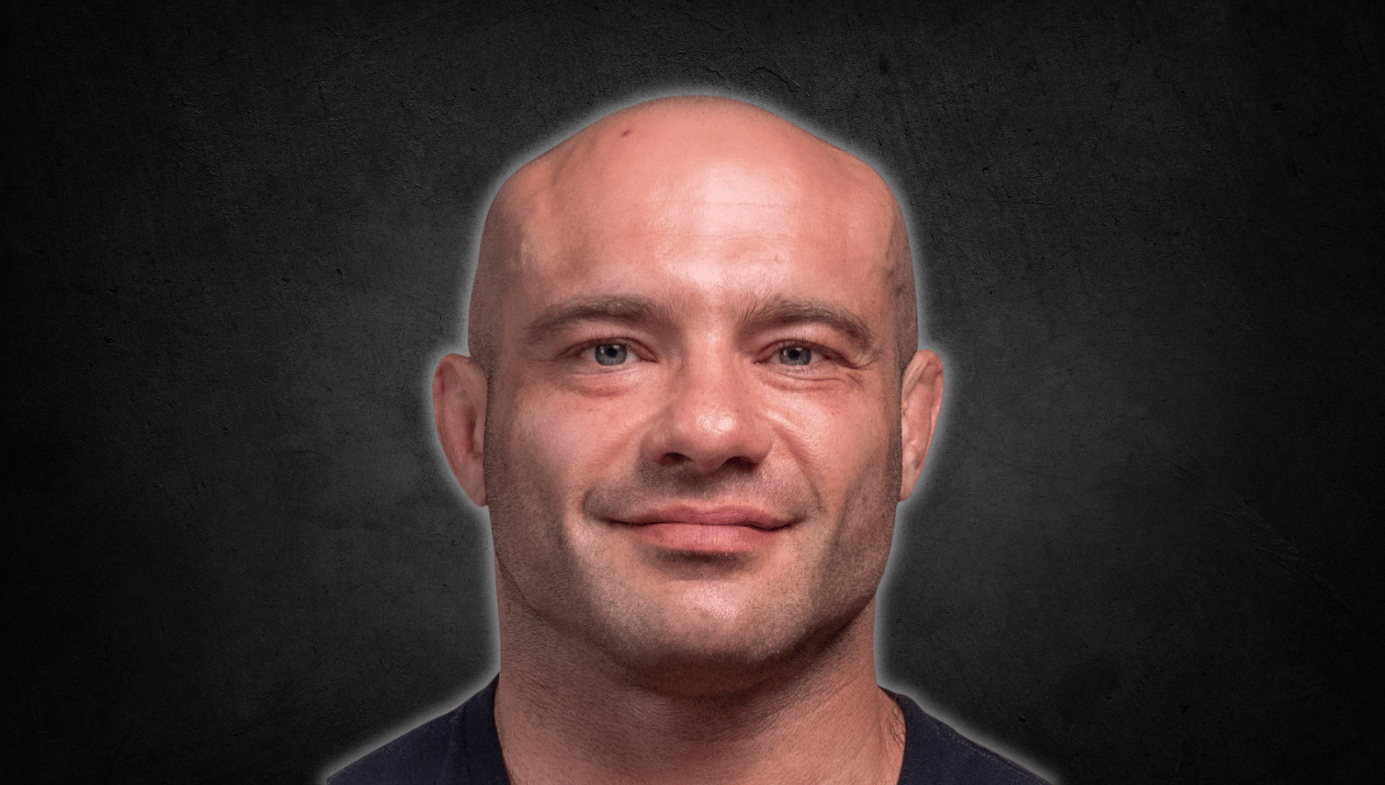Podcast #150: Helen Pluckrose on the Role of Postmodernism in the Construction of Modern Social-Justice Dogmas

Quillette founder Claire Lehmann speaks with Cynical Theories co-author (and Grievance Studies Hoax collaborator) Helen Pluckrose about the influence of postmodern ideas in the formulation of the latest iterations of Critical Race Theory, Queer Theory, and other “intersectional” doctrines.
Transcript:
Jonathan Kay: Welcome to the Quillette podcast. I’m Jonathan Kay, here with a few brief words before stepping aside so you can listen to Quillette founder and editor-in-chief Claire Lehmann interview England-based author Helen Pluckrose. Many of you will know Helen as the former editor of Areo magazine, and one of the three brains behind the so-called “grievance studies hoax” in 2018, in which Helen and two collaborators submitted hilariously bogus Social Justice papers to super progressive academic journals and got many of them published.
Since then, Helen has coauthored a best-selling 2020 book called Cynical Theories: How Activist Scholarship Made Everything about Race, Gender, and Identity—and Why This Harms Everybody. She also started an organization called Counterweight, which helps console and train individuals who are targeted by Social Justice mobs. In this interview adapted from a performance that Claire and Helen conducted as part of the Freethought Live events that Quillette recently hosted with Australian-based Think Inc., Helen goes beyond mere denunciations of cancel culture and looks at the intellectual roots of Social Justice ideology.
In particular, she discusses the way that the postmodern intellectual currents of the 1970s and 1980s, which emphasized doubt and the limitations of knowledge, have been applied paradoxically to more modern Social Justice doctrines, such as Critical Race Theory, which emphasize what their proponents present as ironclad revealed truths about the world, and heavily discourage dissent.
The result, as Helen describes, can be odd and contradictory mash-ups of ideology and jargon, especially in what is known as queer theory, which on one hand embraces the traditional post-structuralist project of tearing down established notions, such as sex and gender, but on the other hand also creates rigid and highly structured intersectional categories such as trans and non-binary. Helen also discusses the relationship between postmodern traditions and Marxism. Many conservative critics often will speak of Marxist and postmodern intellectual traditions in the same breath. But, as Helen explains, the two are very different in several important senses.
Marx focused on convincing people to awaken themselves to class struggle, but postmodern theories tend to focus on the limitations of dialogue and suggest that we are all so suffused by bigotry that conversation or debate are impossible. But enough of my summarizing, let’s get on with the podcast.
Suzi Jamil: Hi everyone. It’s Suzi from Think Inc. here, this event is presented by our friends, Quillette, led by the brave and brilliant Claire Lehmann, who will be the host of today’s show. It is also supported by the Judith Nelson Institute for Journalism, Think Inc. is a proud presenting partners of today’s show, and our mission is to make the world a better place by raising rational discourse through live events.
Please let me introduce to you the founding editor of Quillette, Claire Lehmann.
Claire Lehmann: Thank you so much Suzi. Helen is a UK author and she’s the co-author of the bestselling book, Cynical Theories: How Activist Scholarship Made Everything about Race, Gender, and Identity—and Why This Harms Everybody.
Helen Pluckrose: Hello, thank you. It’s lovely to see you.
Claire Lehmann: I noticed on social media this morning, something popped up, which made me think of your work. And I want to discuss it as applied postmodernism, which is something that you talk about in your book. The CDC, the Center for Disease Control in the United States, has put out guidelines for their use of the vaccine—the coronavirus vaccine—and they’re advising that essential workers get the vaccine first, which is fair enough, but that the broad category of essential workers get it before the elderly. And the reasoning given behind this, even in their guidelines explicitly given, is that the elderly are predominantly or disproportionately white. And I’m wondering if you would see this as an example of applied postmodernism or applied Critical Race Theory.
Helen Pluckrose: The race of individuals shouldn’t have anything to do with whether or not they get a vaccine. We know that black and south Asian people here in the UK have been affected in greater numbers than white people. This is quite possibly because more Latins live in cities, like likely to have larger families, etc., but the whole sort of racialization of the issue has made it very difficult for anybody to find out exactly why differences exists and then how to deal with them.
Nothing really ever works better when you think in terms of power systems of race and identity, and you completely omit any empirical scholarship or consistent ethics, and that’s what we’re seeing a lot of at the moment.
Claire Lehmann: Now I’m going to you book Cynical Theories. I was struck by the emphasis that you put on Foucault as being the sort of Patron Saint of Wokeness, as opposed to some of the earlier critical theorists like Marcuse.
Helen Pluckrose: And a lot of people get very annoyed with me for blaming Foucault for all of this, but I can understand why in some ways, because his work was broad, but there are three main ideas of his that have been continued in the scholarship that has succeeded him. And this is his ideas about knowledge, power, and language. And that is precisely what we’re seeing underlying almost everything and Critical Social Justice or “wokeism” as it’s colloquially called.
So there’s this idea that knowledge is a product of power. What we assume to be true, and the ways we go about discovering what is true operates in the service of the powerful, and these are understood to be straight, white, Western men. And they decide what is knowledge and what isn’t knowledge. The knowledge of other people like women and marginalized groups, minorities and trans people are neglected. And therefore we need to have a variety of knowledges. So this knowledge that’s constructed in the service of power then gets perpetuated through society in discourses, which is ways of speaking about things.
So, this is where the idea comes from that the whole of society is permeated with white supremacism or patriarchy or transphobia, and we need these critical theorists to be able to spot it for us and point it out and make us aware of it because the rest of us are kind of wandering around in a daze, in a dream, because we are not one of the woke.
Claire Lehmann: There’s a form of analysis, I think it’s called discourse analysis, and I think people are trained to pick up newspapers and try to find the discourses or the rhetoric inside newspaper articles for evidence of racism, sexism, and so on. This comes from Foucault, do you think?
Helen Pluckrose: I think Foucault would probably hate the current manifestation of it. I think he’d be spinning in his grave. He certainly wouldn’t have been a fan of identity politics and he’d certainly have recognized the Social Justice movement as an orthodoxy and a meta-narrative in itself. But yes, I think from all of the post-structuralists thinkers, Foucault is the one who’s thought has sort of permeated everything through various different branches.
Through post-colonialism it entered America via Edward Said, in queer theory it came from Butler, and from Kosofsky Sedgwick. And then we see it again in Critical Race Theory where we’ve got this link with intersectionality, which is defined as contemporary politics linked with postmodern theory. We’re seeing a lot of Foucault’s ideas connected to the radical Left politics for which Marcuse and others certainly do bear some responsibility. But the idea of microaggressions, of bias, of unconscious bias, of discourses, the idea that racism is there in everything and we just have to spot it, this is very much more postmodern than the neo-Marxist or post-Marxists of the Frankfurt School.
Claire Lehmann: Would you say that Foucault was the first scholar to problematize biology and the sciences, or were the sciences treated with skepticism before for Foucault?
Helen Pluckrose: Anti-scientific and counter-enlightenment ideas are certainly not limited to postmodern thought, but Foucault is particularly influential here because of his look historically at sexuality and at madness. And there’s some basis in there. We really have changed the way we see homosexuality. It was understood as a heinous sin for centuries. Then it was understood as a sexual disorder. Now it’s just something some people are and everyone else needs to get over it. So we know that culture exists. We know that ideas change, but this is where the postmodernists and Foucault and the queer theorists in particular get extreme and neurotic. They don’t recognize the changing attitudes towards sexuality as progress brought about by the development of a liberal society. But they believe that because ideas have been oppressive before, they still are, and we still have to dismantle everything. It’s very odd that the people who described themselves as progressives are the ones who are least likely to believe in progress.
Claire Lehmann: I remember reading a book back in undergraduate studies called The Invention of Heterosexuality and the thesis was that heterosexuality as a normative category didn’t exist before the 19th century. Would you say that that’s like a classic example?
Helen Pluckrose: The queer theorists, they certainly start in the 19th century. They are looking at the early sexologists and the way that they medicalized sexuality. They tend to start there and focus on a lot of the bad ideas, which is what happens when science begins to study something. It is generally coming into a field that has a lot of bad ideas. And if it works properly, it eradicates those ideas bit by bit. And I think this is what we have seen as empirical studies intersexuality had developed. But yes, this idea that heterosexuality is a construct of the 19th century is clearly nonsense. I was just reading about how masculinity was a construct of the 16th century.
Central to the whole idea of queer theory is to break down all boundaries and to confuse and conflate everything. Queer theory is the one which has remained most purely poststructuralist or postmodern. So in structuralism, and in modern times, we have put things into categories. So what queer theory wants to do is break down those categories. There is no such thing as man and woman, there’s no such thing as masculine or feminine, or gay and straight. These are all constructs—they’re performed. We’ve been put into those categories and the way to liberate people who don’t fit into those categories is to eliminate the categories. And this is why queer has become a verb now. So to “queer” something is to break down the categories in which it’s understood to exist and try and understand it in a different way. This is why we often see queer theorists looking at humans as though they’re aliens who have never encountered a sexually reproducing species before and are trying to work out how it all works.
Claire Lehmann: The concept of non-binary must come directly from queer theory. Would this be correct?
Helen Pluckrose: This is where it gets really interesting and messy, but it’s interesting to me anyway. It’s not interesting to most of my friends, unfortunately, but trans activism as we see it at the moment, and some of the more unusual sexualities or gender identities that are proliferating at the moment, they come from a really unholy mix of queer theory, which wants to break down all categories, and intersectional feminism, which wants to assert the reification, the reality of category groups. So if you have someone saying “trans women are women, trans women are women, trans women are women,” as we will see over and over again, this is not consistent with the queer theory idea of breaking down categories. This is the assertion of a category.
So the whole non-binary thing, when it’s politicized, I would call it Social Justice scholarship because it’s that third generation. It’s not pure queer theory, which is dissolving everything. And it’s not pure intersectionality because it’s still conflating things, but it’s that third contradictory thing.
Claire Lehmann: Now you track how postmodernism has changed over time. How did that transition occur?
Helen Pluckrose: The first postmodernists, because they just wanted to deconstruct everything, essentially, they were radically skeptical and they felt that nothing could be trusted. So there’s a huge proliferation of writing from the ‘60s into the ‘80s, and then it just died because there’s only so far you can go with that. Then at the end of the ‘80s we saw a rise of a new set of theorists who essentially argued that postmodern ideas were useful and deconstructing gender and sexuality and race and everything else was a valuable thing to do.
Seeing everything as an oppressive social construct was good, but we have to accept some reality to exist, or we can’t do anything. So theorists ranging from Butler in queer theory to Crenshaw in intersectionality, Mary Poovey in feminism, all said we need to use some of these postmodern tools, but we need to accept that an objective truth exists. And that truth that exists is that power and privilege exist. Crenshaw phrased it as the fact that everything is a social construct doesn’t mean that power isn’t clustering around these social constructs and affecting real people. So this is a turn back to some objective reality. Then as this scholarship grew in different branches from post-colonial theory to queer theory, to Critical Race Theory, to disability studies, to fat studies, it became more and more confident of itself.
Almost 50 years of scholarship behind it now, it became a lot clearer and a lot more assertive. So if you were to compare a paragraph from Judith Butler with a paragraph from Robin DiAngelo, you will find in Butler incomprehensible prose expressing doubt about everything, and in DiAngelo you will be told that it is absolutely impossible for a white person not to be racist, that everybody has been socialized into white supremacy. There’s really clear language. There’s a really strong certainty.
So what has happened over the last 30 years? The postmodern ideas of knowledge, language, and power became politicized and actionable and they have ratified concretized and simplified into this very reductionist system, where everybody is dominated by discourses around identity and plotted on this power grid.
Claire Lehmann: Some would argue that what we see now resembles the Marxist critique of society or the conflict critique where we have oppressors versus the oppressed in this very simplified reductionistic framework, but you’ve rejected this idea that it’s a Marxist critique.
Helen Pluckrose: I have followed the postmodernists in their criticism of Marxist critiques. So Foucault again, he criticized the post-Marxists who were seeing power as pressing down. There’s an oppressor group and an oppressed group and the group at the bottom needs to raise their consciousness, and have this critical consciousness to realize that they are being oppressed by the capitalist system, and then they will rise up and overthrow the oppressor. So Foucault and the other postmodernists disagreed with this. They thought this was a simplistic meta-narrative. What happens is not that there’s a group of people knowingly oppressing another group, but there are “ways of knowing,” there is a construct of knowledge which leads to ways of talking about things, which is then perpetuated by everybody.
This is why we will see activists leap on the words of the president of the United States or somebody with three followers on Twitter, because whoever they are, they’re speaking into this discourse. So the people who need to raise their consciousness in the postmodern idea are the privileged, we are the ones who are blind and can’t see things.
Marx thought philosophy would free the proletariat. He believed in the ability to argue for something to raise consciousness. He believed in dialectics, so he believed in dialogue. The postmodernists don’t, they believe that discourses would just get repeated and repeated. And so their descendants want to shut down conversation rather than make arguments or measure ideas against each other. They don’t think that can ever actually work.
Claire Lehmann: This idea that power comes from discourse, is this the root of the idea that language causes violence or language can be violent?
Helen Pluckrose: Yes. If you were to search discursive violence or epistemic violence, then you’ll find a whole body of scholarship on how our systems of knowledge and the way we talk about things create violent outcomes for certain groups in society. If you don’t accept that trans women are straightforwardly women, then you are encouraging a hostile environment in which trans women commit suicide or are murdered.
There’s also just a tendency to see people speaking into an oppressive discourse as creating a violent situation for everyone. And then, of course, this justifies responding to it with physical violence.
Claire Lehmann: And is this concept of epistemic violence or discursive violence relatively recent or new? When I was at university and I came into contact with post-modernism, I’d never heard of it.
Helen Pluckrose: Well, epistemic violence is Gayatri Spivak. So that’s certainly not new. And she cited Michel Foucault on almost every page, but your recognition that this has just really sort of exploded in the last five years is pot on because this is when the discipline of feminist epistemology and critical race epistemology has really taken off.
And in our book we put it in the same chapter as Social Justice scholarship, because it’s the final stage. I think it’s the stage we’re at now, where everything is about the knowledge that is owned by the powerful and the knowledge that is denied to the marginalized. So the language around the epistemology has just really proliferated in the last five to ten years, particularly the last five years.
So we hear epistemic exploitation is when you ask someone to explain their experiences of oppression, but epistemic oppression is when you don’t ask them to. There isn’t a right way to do this. You can erase people. You can exploit them. There’s even epistemic death, that one is Jose Medina, and that comes about when people are so misunderstood that they cease to believe in themselves as having a life as being a real person. There’s a massive amount of scholarship around it now.
Claire Lehmann: It’s like the world entirely exists through language.
Helen Pluckrose: We are always neurotic about language. Laws about heresy and blasphemy go back. The idea that we should be able to freely exchange ideas is what’s new and what’s weird. The postmodernists and that the Social Justice scholars and activists, they seem to think that they’re being new and radical when they’re being so neurotic about language. But in reality, they’re tapping into a very human instinct to try to control what other people are allowed to think and say.
Claire Lehmann: That’s a tremendous insight. And I had not thought of it that way. Is that insight gained from your Medieval History studies?
Helen Pluckrose: It’s the ways in which women use the Christian narratives to sort of gain authority and autonomy for themselves. So I looked at that before and after the reformation in England. I was interested in how Catholics and Protestants differed in the way that they allowed women to actually have a voice in a time which genuinely was patriarchal. You can see certainly a lot of patterns. People simply weren’t allowed not to be Christian for a lot of English history. This authoritarian “for your own good” attitude I think it’s really quite central to humans. The belief that if you allow people to express heresy, you will damn souls, so you by canceling them, by killing them, or by removing them from society, you are doing something good and you are protecting people. You are keeping them safe.
And we certainly see echoes of that in the Social Justice idea that if somebody says something which you see to be damaging, and their career is utterly destroyed or damaged, it’s a just response because it’s preventing them from reinforcing this harmful narrative that is literally killing people, as they would say.
Claire Lehmann: So it’s a tendency of humans to want to police each other’s language and to enforce purity and conformity, but we had this marvelous period of Enlightenment and modernity. Can you explain from a historical point of view how the Enlightenment liberalism and modernity differentiate from that more medieval period of history, and what’s unique and different and what’s worth preserving about the modern period?
Helen Pluckrose: This is where philosophers are going to accuse me of being hugely simplistic, but I’m just going to have to. In pre-modern times the idea of knowledge was that it came from divine revelation. The idea of language was that it should be monitored and that people must believe the right thing. There was confession, there was catechism. And the idea of power is that there is just power, and that comes from the church and from the state, and everybody has their place and they have to act within their role. So the idea that gradually developed very imperfectly over the modern period was the idea of the individual who could assess ideas for him or herself.
So of course, the reformation played into this a lot where everybody was supposed to read the Bible and interpret it for themselves, have the Renaissance. There’s the idea of the many-sided person who could relate to ancient Hebrews or ancient Greeks, but was an individual. And as we’ve gone through gradually developing these liberal ideas and the idea of liberalism itself kind of solidified with the likes of John Stuart Mill and, and Mary Wollstonecraft.
But the idea that we should actually all have our right to express ideas, and not only should this be an individual right, but that it actually advances knowledge. So a Milton argued for this 400 years ago, obviously he didn’t extend this freedom of speech to Catholics and atheists, but the argument that he made was that it is better to be wrong for the right reasons for having looked at things and assessed them yourself, then just being right because you believe what you’ve been told to believe.
So this idea of knowledge as something that can be attained by study, by thought, and it can be argued out, is something that developed very gradually, but it came into a real culmination between the ‘60s and the ‘80s when we saw these liberal ideas extended to everybody. So before this, we had this idea that everybody was an individual and everybody was equal, but that didn’t actually include black people, women, or gays. So the ‘60s to the ‘80s, we saw the Civil Rights movement. We saw gay pride. We saw liberal feminism. And then the fall of colonialism and at the end of Jim Crow, so these were huge, huge developments.
And this is part of what started the postmodern phase, because there is just disillusionment with how many centuries have we been oppressing people when we thought ourselves to be liberal and inclusive? But what is essential to note is that these massive changes, which improved in the rights of women, in racial equality, and the rights of gay men to have sex without being arrested and ultimately to be able to be a married, these were liberal developments. These all happened before the postmodern branches all sort of spiked up and around 1989. Something happened in 1989 and we saw that the rise of queer theory and intersectional feminism and Critical Race Theory, this was a disillusionment with liberalism. At this point, they decided liberalism couldn’t do the job that it was meant to do, and they decided this precisely the time when it had just done it and was still doing it. It’s quite infuriating.
Claire Lehmann: One of the weaknesses of liberalism is that when people have opportunities and rights, they choose to do different things. Now I choose to spend my time doing something that I enjoy and find fulfillment from, but I might not get paid as much as I would doing something else, but that’s my choice.
So when we have opportunity and freedom and rights, we choose different things and that leads to different outcomes. And what we see today, so often in the discourse in media narratives is that different outcomes are a priori evidence of discrimination. It seems to me that there’s sort of a gap in liberalism that gets exploited by critical race theorists and others who would want to implement a more authoritarian system.
Helen Pluckrose: I certainly think that liberalism leaves open the possibility for people to be illiberal and have illiberal ideas. That’s always a danger. I think it’s a necessary danger. I think we have to allow people to have bad ideas and to be factually wrong about things. And I think the evidence that liberalism has worked to advance knowledge and make moral progress is quite overwhelming.
But yes, that certainly is the weakness of it. If we allow people to believe whatever they want to believe and to apply their beliefs to their own lives, as long as they’re not harming anybody else, we’re going to see the rise of some really terrible ideas. And some of them are going to get quite popular, as we’re seeing with Critical Social Justice. It would be illiberal to ban this belief. I would argue, and we do argue in Cynical Theories that the rules of secularism need to be applied to it. It needs to be understood as something that people have the right to believe, to express and live by, but not imposed upon other people. But yes, a liberal society is not one that would crush this idea or criminalize it. I think on the whole that’s a good thing, but it certainly is why these ideas exist.
Claire Lehmann: I know that you don’t advocate for the defunding of certain academic disciplines and departments within the university. You acknowledge and respect academic freedom. And it’s a bad idea to set a precedent for government interference.
Helen Pluckrose: I think that would set a very bad precedent because we might think that, yes, getting rid of scholarship which isn’t based on evidence, which doesn’t have consistent principles, is a good thing. It’s like we wouldn’t want alchemy or phrenology taught in universities, but those ideas have to die naturally. We can’t have the government deciding what is and isn’t good knowledge. We have to submit them to the marketplace of ideas and let them sink or swim.
And this is one of the problems with Critical Social Justice theory. They don’t submit themselves to the marketplace of ideas. They surround themselves in theory, which just closes down any possibility of legitimate disagreement. One of the papers that we wrote during our project argued that there simply is no way to legitimately disagree with Social Justice scholarship and anybody who tries should be punished and shut down. That was one of our papers that got accepted fastest of all, in nine days it was accepted with revisions, and then a few revisions and it was in. Now that’s terrifying.
Claire Lehmann: Another paper was about dog humping in parks. Can you tell us about that paper, Helen?
Helen Pluckrose: People always remember that paper because then it’s funny. Yeah, that was the one that got us caught because it was so obviously ridiculous to everybody who wasn’t a particular kind of feminist geographer. In that one, we claim to have examined thousands of dog genitals in three parks in Portland, Oregon, then interviewed the owners of the dogs about their sexuality and then applied Black Feminist Criminology for no apparent reason to this data. And then concluded that it meant that nightclubs were rape-condoning spaces, and we should train men like dogs. And by the way, we’d also shredded all of our data in order to protect the dog’s privacy. So it was the most ludicrous.
People have criticized us for fabricating data, but this data wasn’t possible in the first place. And the conclusions we drew from it were simply not warranted or even related. So this is why we did this. This is why we submitted implausible data and drew weird conclusions from it. And that one had a special place in an addition as exemplary scholarship.
I don’t want to disparage all scholarship. There is some good scholarship going on out there. And after we revealed our projects a group of feminist geographers got in touch with me. They were interested in our paper because they were doing solid research into, I think it’s the distribution of medical resources in south Asia, and they were doing proper feminist geography and they were very concerned about the journal, and it undermines when they’re published rubbish like this, it undermines the really solid work that is being done by empirical scholars in the same field.
Claire Lehmann: We’re often quick to write-off the humanities. Well, I know I have, I’ve written off the humanities as irrelevant or full of these nonsense ideas, but there are very good scholars doing very good research in the humanities. And there’s a lot of people doing empirical research. It’s really sad that these people doing valuable research are getting caught up or lumped in with this nonsense. And I wish there was a way we could disentangle the more valuable parts of the humanities from some of these faddish theories and ideas. Have you thought about how we can do this in a more effective way?
Helen Pluckrose: Well, this was one of the aims of our project. And I’m tentatively encouraged that something like this is happening because this kind of problem can happen in any field. But when the Wakefield paper was published, wrongly linking vaccines with autism, there was a method there for the paper to be criticized, for the problems to be shown, for it to be removed.
So we need for cultural studies and identity studies to apply these same kind of critiques of their own papers. Yes, we did want to embarrass this kind of scholarship and show how terrible it was in order to make people want to step away from it. And a lot of academics after this, even ones who really hated us and thought we were fascists, were quick to say that they didn’t do that kind of scholarship. They did empirical scholarship. So maybe we did a good thing there.
Claire Lehmann: Have you noticed any of this self-correction occurring or is it just business as usual?
Helen Pluckrose: I’m keeping my eye on the journals. Some of the papers that we wrote have now been written seriously. We saw, for example, in one of our papers, we wrote that eating spicy chicken wings was actually a homophobic act because of the idea that it burns on the way out and it was this toxic masculinity. And then somebody wrote an article actually arguing that. And then recently somebody wrote an article arguing that anal penetration with sex toys could help men deal with that toxic masculinity, which is another paper that we actually got published, quite seriously.
So no, I think the nonsense is still going on, but I think the general public is more aware of it now. And I think because it is becoming authoritarian, because it’s becoming enforced on people in their places of work and in their children’s schools, they’re less inclined to tolerate it. And what I want to happen is for them to push this back from a liberal perspective.
My worry is not that it’s going to win. I don’t think it can. My worry is that it’ll get pushed back by Right-wing socially conservative ideas, which could actually roll back gender, racial, and LGBT equality.
Claire Lehmann: I suppose some people would argue though, that the center-Left is not doing a very good job at policing some of this nonsense on the fringes, and these ideas on the hard Left of becoming more and more entrenched in institutions.
Helen Pluckrose: This is a valid criticism because I think the ideas on the Social Justice Left, cause there’s obviously also a radical left, which is Marxist, and which is also critical of the Social Justice Left. The liberal left is not doing a very good job at all of marginalizing these ideas. You get the populist and even ethno-nationalist ideas on the Right and they don’t get institutional power. I mean, they’ve got political power. Donald Trump was elected and that I think was a symptom of the problem.
But I think there is a majority of people on the liberal left who don’t agree with these ideas, but they still think that they should support them because anything that’s for “social justice” must be a good thing. If they go against anything that’s supposed to improve racial equality, then they will be called a racist. Or they may even fear that they actually are being racist. And so there isn’t a strong enough understanding of how these ideas work to get the liberal Left to really push them out. And that’s one of the reasons that we wrote the book—we want liberals to be confident enough to argue with these ideas, without feeling like they’ll be accused of being, or caring that they’ll be, wrongly accused of being racist if they have liberal anti-racist ideas.
Claire Lehmann: Yeah, I think one of the traps is that today’s activists who are from a Critical Social Justice perspective trade on the prestige of the Civil Rights movement, and they often use the same language. But the ideas and how they’re enforced are at odds with Enlightenment liberalism of the Civil Rights movement. And getting that across is proving to be difficult.
Helen Pluckrose: This shouldn’t be difficult because Critical Race Theory differentiates itself very clearly from Civil Rights discourse. It critiques liberalism. It critiques the Civil Rights movement as being too universalist. It wants to overturn liberalism entirely. It puts itself in direct opposition to the thought of people like Martin Luther King, really quite explicitly, but people don’t tend to see this.
Claire Lehmann: We’re running out of time, Helen. You don’t have to, but if you want to plug the new organization that you’ve been building, feel free to let us know more about it.
Helen Pluckrose: Counterweight has been operating as a Discord server, and this is for people who are having problems at work or at their children’s school with Critical Social Justice ideas being imposed on them. So we are there for individuals and are particularly focused on those who aren’t academics, who may not be accustomed to writing their views, defending their views. Just average people who are trying to do their job and are getting suddenly diversity-trained into things that they don’t believe are true or ethical. We’ve had a lot of success. People will come in, we will look at their case individually, we will guide them to resources or help write a letter or practice a conversation they want to have.
And we’ve had quite a lot of success, I would say. If we get people to push back at Critical Social Justice ideas in a principled and knowledgeable way, you want people to be more confident to say “I don’t believe what you believe. I am absolutely with you in opposing racism, but I don’t believe in invisible systems of whiteness.”
Claire Lehmann: Now, how can people support your work? I know that there’s a Patreon page for Areo. What’s the address of that?
Helen Pluckrose: I think it’s just PayPal me Areo. It’s on our website anyway. And Counterweight is going to be setting up somewhere for people to donate if they feel that we’ve helped them to deal with an issue in their lives or they want us to help other people.
Claire Lehmann: Thank you so much for joining us, Helen. I really appreciate you taking the time to talk about some of these obscure yet highly influential academic concepts. And for taking such a deep-dive into this scholarship, which many people find tedious and impenetrable, but it needs to be discussed and deconstructed.
Helen Pluckrose: Thank you very much.











